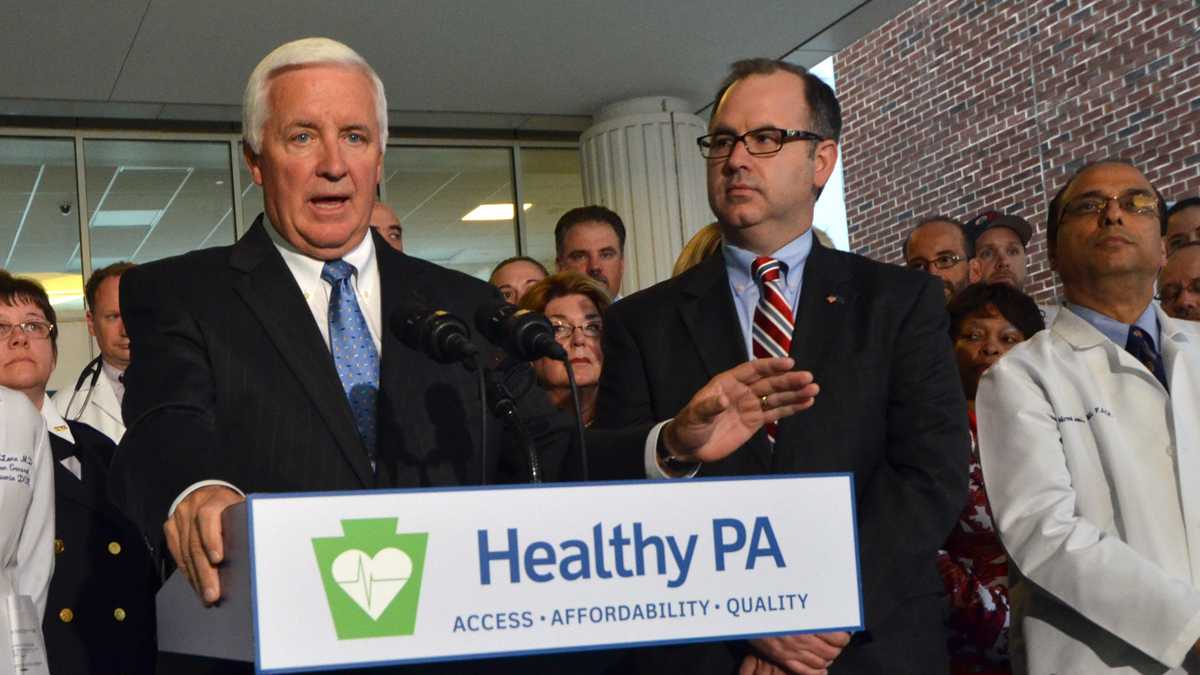Dismantling of Corbett’s ‘Healthy PA’ Medicaid alternative now complete

Pennsylvania officials have finished dismantling Healthy PA, a Medicaid alternative championed by former Gov. Tom Corbett. (AP file photo)
As of this month, Pennsylvania has completely phased out former Gov. Tom Corbett’s alternative Medicaid system. The shift has made enrollment quicker and easier, according to state leaders.
Corbett’s Medicaid alternative, “Healthy PA,” took effect last winter. It included different categories of coverage, depending on an enrollee’s income and health status.
Erin Ninehouser, policy director with the Pennsylvania Health Access Network, has helped people sign up and has been keeping tabs on about 1,500 applicants. The enrollment process was confusing, slow and required added paperwork, she said.
State assistance phone lines were totally jammed.
“You couldn’t get through at all, and you didn’t even have the option to wait,” she said. “You know, they would just say, ‘We’re too busy right now, call back later.'”
State Department of Human Services Secretary Ted Dallas agreed.
“The percentage of calls answered was about 44 percent, which is not great customer service to say the least,” he said.
Corbett, a Republican, had touted Healthy PA as an important fit for the state. He received a federal waiver to draw down funding that was originally intended for a traditional expansion. His plan included a “private coverage option” for newly eligible enrollees.
Under any type of expansion, traditional or alternative, childless adults earning up to $16,200 a year have become eligible for coverage.
When Gov. Tom Wolf, a Democrat, took office earlier this year, state officials began phasing out Healthy PA, transitioning people into a single, traditional Medicaid model.
They’ve since completed switching over the remaining 104,000 people who were still in the private coverage option, with that traditional benefits coverage kicking in Sept. 1.
Placing everyone into one category of coverage has meant less bureaucracy and a much more responsive enrollment process, Dallas said.
“That 44 percent of calls answered is now 98 percent,” he said.
“It’s really like night and day,” said Ninehouser, adding that one area in need of improvement is application materials and resources for people whose native language is not English.
Meanwhile, most complete applications are being processed within the standard 30-day time period, according to Dallas.
The numbers, however, don’t include how many applications were rejected.
According to the most recent state figures, a total of 440,000 are enrolled in the state’s expanded Medicaid, including 217,000 people who have signed up since April.
Dallas’ department estimates an additional 160,000 residents are eligible.
Looking ahead, even though more people are now covered, it’s unclear whether enough doctors will accept new Medicaid patients.
WHYY is your source for fact-based, in-depth journalism and information. As a nonprofit organization, we rely on financial support from readers like you. Please give today.

